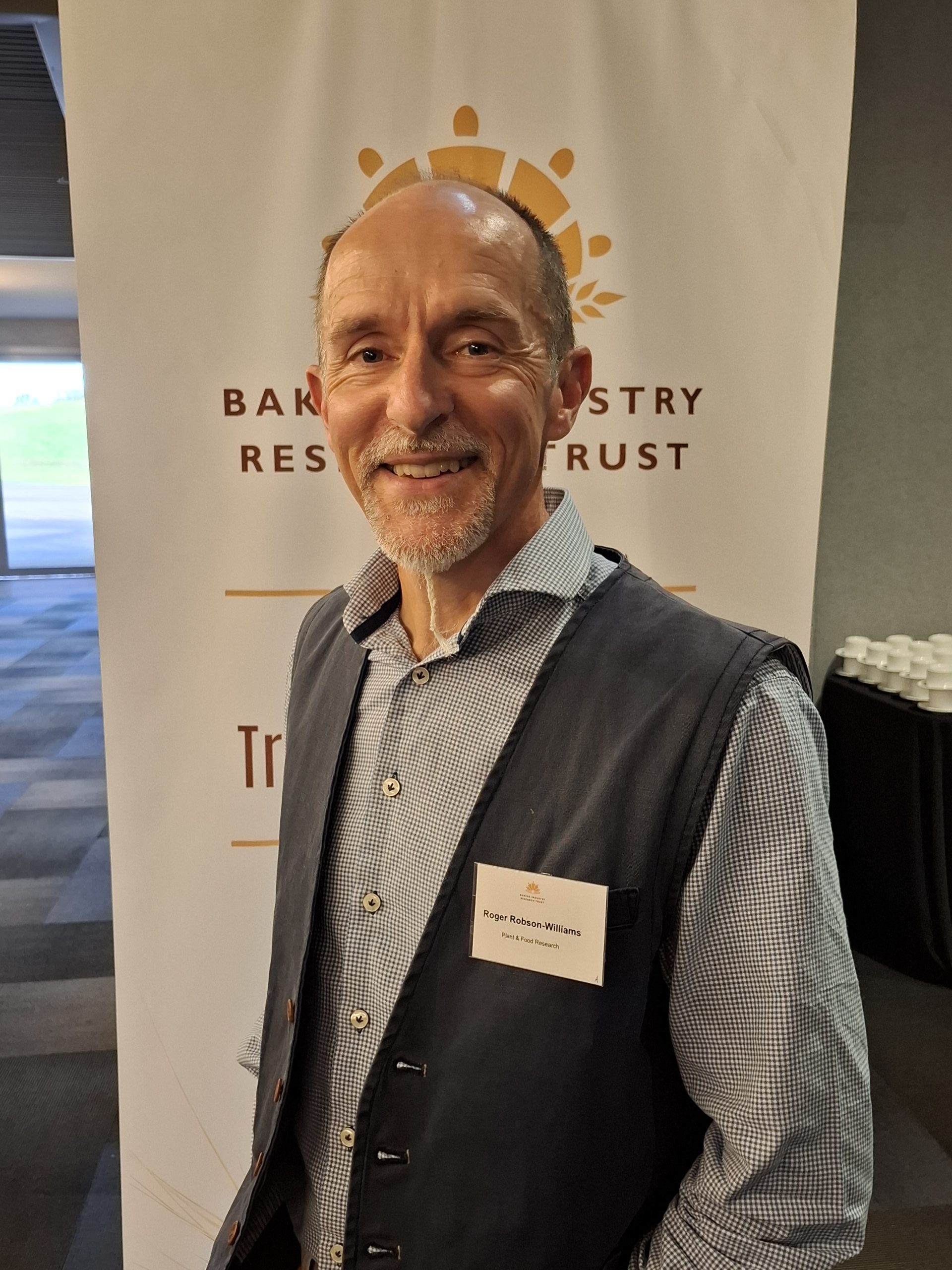Recent Articles
- 2025 Entrants Bread Baker of the Year Competition
- New logo shines light on New Zealand-grown grains
- Recovering valuable resources to create sustainable biogas and biofertilizer
- Field to Flour: Can we reduce our footprint?
- Leading Action on Food Waste
- Bread bags from bread returns
- Baking Global Technology Scan
- Sustainability for the Baking Industry – Food without Footprint
- Better energy management for bakers
- Update on the Soft Plastic Recycling Scheme
Presented as part of Technology Transfer Seminars 2025
Dr Roger Robson-Williams, Plant & Food Research Limited
Dr Roger Robson-Williams is a sustainability professional and scientist, with over 25 years’ experience of leadership in food system R&D. He is responsible for leading sustainability at Plant & Food Research Limited and has an advisory role in sustainability at AgResearch. Roger is also a member of the Sustainability Sub-Board of NZTech.
What’s good for nature is good for business.
Sustainability in business isn’t just a “nice to have”—it’s essential. Even if you don’t buy into the moral imperative, there are strong business reasons to take sustainability seriously. And understanding the global macro context can help to give meaning to and encourage our actions.
So, it was fitting that Dr Roger Robson-Williams began a seminar on sustainability by painting a big picture, which he described as “grim”, but with the assurance that there were some positive insights and a call to action to come.
Roger highlighted that modern society’s consumption has surged since the discovery of fossil fuels, improving lives but depleting resources. “We’re running out of stuff on a planet with finite resources. The earth’s capacity to deal with the waste we create is pushed to tipping point.”
Roger introduced planetary boundaries – the key life supporting systems of the planet that allow us to live comfortably. Based on “The Planetary Health Check” – the most comprehensive, science-based global initiative dedicated to measuring and maintaining the Earth system – these boundaries identify nine critical earth systems that support civilization as we know it. The last fifteen years have shown just how far we are pushing these systems – we are in the red for a least six of the systems.
Closer to home, a New Zealand Ministry for the Environment commissioned report showed our contribution to transgressions in five of those boundaries, especially for nitrogen and phosphorus, where we are greatly exceeding our fair share, and for climate change. An Environment Aotearoa report in 2022,which includes samples and measures to find indicators of environmental health, frames people as part of the environment and a key leverage for environmental change. “We’re in a strong position to address this issue, but all indicators back up the boundaries stories – everything is heading in the wrong direction.” One piece of good news Roger showed was that ozone depletion is reversing because of international action.
Between 2007 and 2017 climate change related floods and droughts cost the NZ economy $840m. It is estimated that if we manage to limit global heating to 2 degrees by 2050, we are still looking at a 4% reduction in global GDP. 3.2 degrees could be as much as an 18% reduction. But most sobering of all, risk assessors see these impacts as massively underestimated and, in their estimates, a 3 degree increase by 2070 would halve global GDP and lead to global economic collapse.
Roger’s key message is that it’s cheaper to act on sustainability now. Mitigations that seem costly now will be far less expensive than future damages. He urged us to see sustainability not as marketing or compliance, but as essential for business survival. What’s good for nature is good for business.
So, what can individuals and businesses do? Roger emphasised the need for everyone to feel empowered and capable of making a difference. He outlined the business case for sustainability:
Resource Efficiency: Conduct energy assessments and implement recommendations to achieve significant savings.
Staff Retention: Younger employees value sustainability policies.
Risk Management: Mitigate risks like energy price volatility.
To get started, focus on your most significant negative environmental impacts and understand what you can do about them. Make rational business decisions—avoid greenwashing and prioritize the big issues.
Roger recommended the Future-Fit Business Benchmark, a science-based framework that provides a numeric score to help businesses understand their biggest impacts and quickly act. It helps track progress, plan, and prioritize sustainability efforts, embedding practices like renewables, living wages, and greenhouse gas emissions reduction into business operations. Plant & Food Research Limited and AgResearch have both adopted the Benchmark along with many other businesses in the Asia Pacific region.
Roger also recommended an emerging methodology called Planetary Accounting, which translates the Planetary Boundaries concept into Planetary Facts that can help inform consumers about the true environmental impacts of the products they choose.
It takes courage to transform and go beyond profit, small gestures or the hope that technology will save us, but the cost of inaction is far greater.

